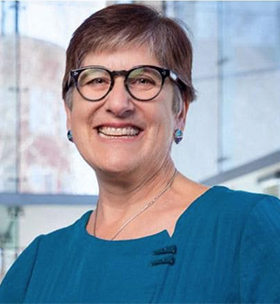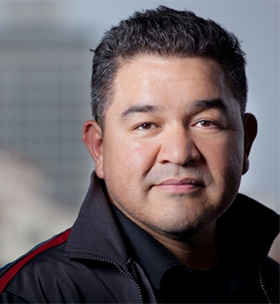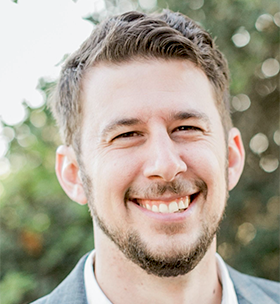Calibrating Ethnofutures



INSTRUCTORS: J.A. English-Lueck (San Jose State University), Rod Falcon (Institute for the Future),
Andrew Marley (San Jose State University)
SCHEDULE: This tutorial has one required session, and it is offered twice:
3A is ideal for attendees in the Americas, E+SE Asia, AU, NZ
Mon, Oct 19, 3–6:00 pm San Francisco = 7:00 pm São Paulo = Tues, Oct 20, 9:00 am Melbourne / convert time zone
OR
3B is ideal for attendees in the Americas, Africa, Europe, Middle East, W+S Asia
Wed, Oct 21, 8–11:00 am San Francisco = 12:00 pm São Paulo = 4:00 pm London = 6:00 pm Istanbul = 8:30 pm New Delhi / convert time zone
*Registration is closed
Overview
This tutorial introduces Ethnofutures to ethnographers who want to integrate forecasting methods and tools into their current professional practices. The goal is to translate ethnographic material into imaginative, but grounded, scenarios of their future users, services, and products. Tutorial leaders will review essential skills and methodologies from applied foresight research: signals (aka horizon scanning), drivers (aka megatrends), and scenario building. Practitioners, such as designers and business strategists, must imagine futures based on existing signals of change. Those signals can come from the activities of individuals, the organizations in which they work, as well as the larger social events around them. The forces fomenting change can be highly localized, such as a specific municipal policy on gig workers or also be global in scope, pointing to the role of gig work as a facet of contemporary transnational capitalism. Moreover, the future itself is scalable: Organizations toggle between data-rich forecasts that extend less than a year, to more speculative futures that consider impacts decades into the future. Each practitioner must judge what scope to use to create a design fiction or develop a business strategy.
The training will utilize a “cooking show” approach: practicing methods together with pre-prepared materials to accelerate our pace. We will begin by drawing on recent research done by the Institute for the Future that explores the range of practices and practitioners that pull futures perspectives into their organizational work. In breakouts, participants will share how they can use ethnographic data to build scenarios that interpret the experiences of producers and consumers. For the sake of clarity, participants will work on a shared exercise during the tutorial. We will review the basic principles of Ethnofutures, practice, and give participants a chance to work with pre-curated ethnographic data, in this case collected on the experiences of workers in the gig economy, to build future scenarios. Finally, we will ask participants to imagine a use case for Ethnofutures in their own work, identifying optimal temporal and spatial scales. The participants will leave with new tools for exploring and communicating futures perspectives in their organizations.
Instructors will draw on years of experience teaching the skills of foresight to students, clients, and stakeholders of many disciplinary backgrounds. The tutorial consists of extensive hands-on group work followed by discussion and unpacking. Participants will learn to:
- Develop a forecasting framework using ethnographic data
- Identify how different social scales (individual, networked, organizational), different spatial scales (local, regional, national, global), and different temporal scales (near-term, mid-term and long-term) change with the kind of question the organization is trying to address
- Reframe their own professional identities as futures-oriented practitioners
- Discover use cases for Ethnofutures approaches within their organizations
Participants will be asked to complete a light reading assignment and two simple (10-30 minute) exercises prior to the tutorial to help us make the most of our time together.
Instructors
Jan English‑Lueck is Professor of Anthropology at San Jose State University and a Distinguished Fellow at the Institute for the Future. She has written ethnographies about the anthropology of work, science and technology among California’s alternative healers, and China’s scientists. She is also the author of several books on Silicon Valley including Cultures@SiliconValley (second edition), winner of the American Anthropological Association’s 2006 Diana Forsythe Prize for the anthropology of science and technology. English-Lueck is Past President of the American Anthropological Association’s Society for the Anthropology of Work. As a member of the graduate faculty in applied anthropology, she integrates ethnographic design futures into her students’ training with partners ranging from the Silicon Valley Alliance (Renault Nissan Mitsubishi) to Japantown Prepared!
Rod Falcon brings his extensive experience directing research and teams at IFTF to his current role co-leading the IFTF Vantage Partnership. With a deep background in public health policy, he has served in several different capacities at IFTF since 1995, including leading the Food Futures and Health Futures programs and leading research for the Tech Futures program. In the course of his work, Rod speaks to executive audiences and helps them find innovative strategies for participating in the global economy. His research focus areas have included personal health technologies, communication and messaging practices in the workplace and home, social networks and abundant connectivity, and health-aware environments. Born in Oakland, California, in a time and place of great social change, Rod attended nearby UC Berkeley to better understand what was happening. There he earned a BA in American history and a Master’s of public policy. After working one summer enforcing the Voting Rights Act for the Justice Department, Rod realized that public policy was not as future oriented as it might be and was inspired to do something about it. He came to IFTF to forecast the future of the California health care safety net and ended up staying on.
Andrew Marley is a graduate student in applied anthropology at San Jose State, currently researching the future of reputation in the gig economy. Before returning to graduate school, he spent several years leading various process improvement projects in a manufacturing environment. He left to improve his understanding of how the way we do business affects the lives of all stakeholders. Andrew’s past projects include process improvement, building bridges between departments in a global manufacturing company, and research into transportation strategies informing the development of autonomous vehicles.
Questions? register@epicpeople.org
